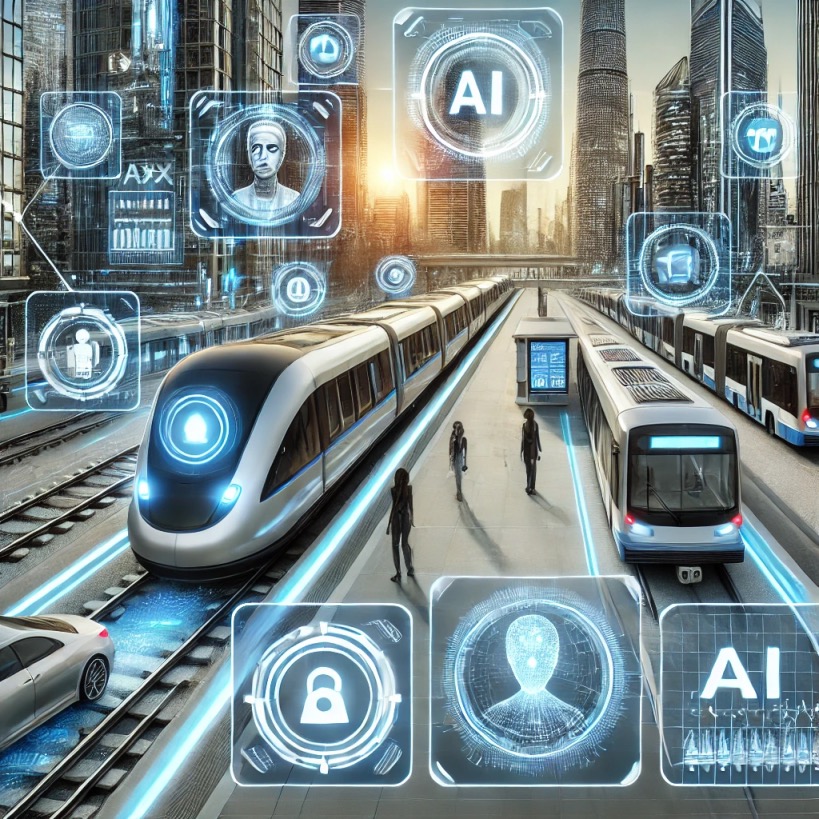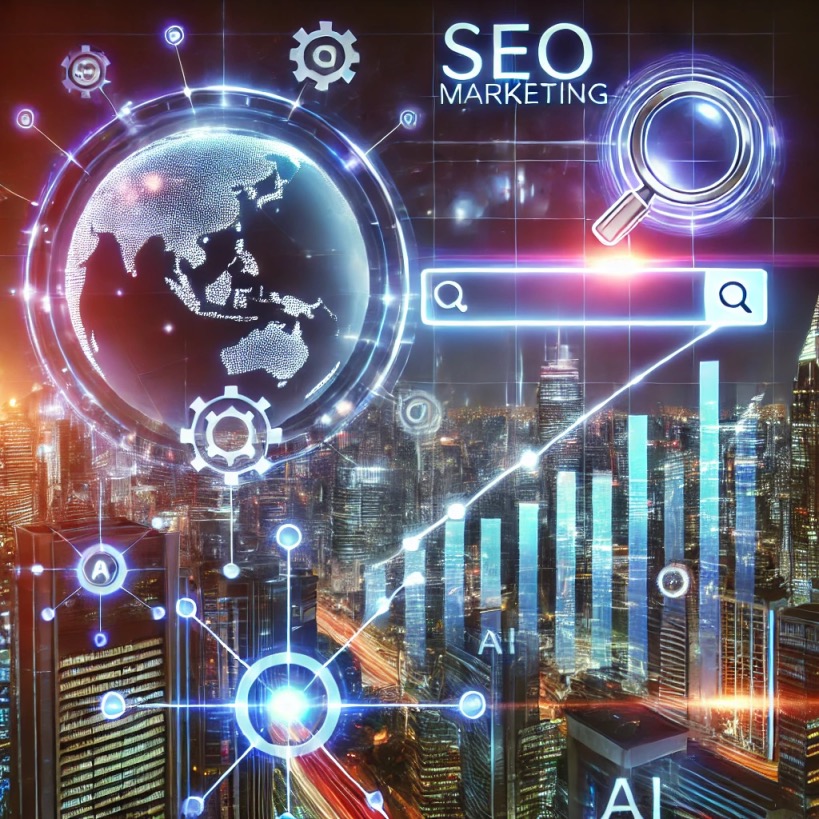Artificial Intelligence (AI) is revolutionizing the travel and tourism industry, making trips more personalized, efficient, and seamless. From planning trips to navigating destinations, AI is transforming every aspect of the travel journey. Here’s a comprehensive look at how AI is changing the face of travel and tourism:

1. Personalized Travel Planning
AI-powered tools are making it easier for travelers to plan their trips with tailored recommendations and seamless booking processes.
- Smart Travel Assistants : Virtual assistants like chatbots and voice-activated systems (e.g., Siri, Alexa, or Google Assistant) help users find flights, book accommodations, and create itineraries based on preferences such as budget, interests, and travel history.
- Recommendation Engines : Platforms like Expedia, Booking.com, and Airbnb use AI algorithms to analyze user behavior and suggest destinations, hotels, and activities that match individual tastes.
- Dynamic Pricing : AI analyzes real-time data to offer dynamic pricing for flights, hotels, and car rentals, ensuring travelers get the best deals while helping businesses optimize revenue.
2. Enhanced Customer Service

AI is redefining customer service in the travel industry by providing instant support and resolving issues efficiently.
- Chatbots and Virtual Agents : Many airlines, hotels, and travel agencies use AI-driven chatbots to handle inquiries 24/7, from answering FAQs to assisting with cancellations or rebooking.
- Example: KLM Royal Dutch Airlines uses an AI chatbot to send flight updates, boarding passes, and travel tips via Facebook Messenger.
- Sentiment Analysis : AI analyzes customer feedback and reviews to identify pain points and improve services.
- Voice Recognition : Voice-activated systems allow travelers to interact naturally with apps and devices, making communication more intuitive.
3. Streamlined Airport and Airline Operations
AI is improving efficiency and security at airports while enhancing the overall flying experience.
- Facial Recognition and Biometrics : AI-powered facial recognition systems are being used for check-in, security checks, and boarding, reducing wait times and enhancing safety.
- Example: Delta Air Lines and JetBlue have implemented biometric boarding processes at select airports.
- Predictive Maintenance : Airlines use AI to predict potential mechanical issues in aircraft, minimizing delays and ensuring passenger safety.
- Baggage Tracking : AI systems track luggage throughout the journey, reducing the risk of lost bags and providing real-time updates to passengers.
4. Smart Hotels and Hospitality
AI is transforming the hospitality sector by creating smarter, more personalized guest experiences.
- AI-Powered Concierge Services : Robots and virtual concierges assist guests with room service requests, restaurant reservations, and local recommendations.
- Example: Hilton’s “Connie” robot provides information about hotel amenities and nearby attractions.
- Room Automation : Smart rooms equipped with AI technology allow guests to control lighting, temperature, and entertainment systems through voice commands or mobile apps.
- Personalized Marketing : Hotels use AI to analyze guest preferences and offer customized promotions, such as spa packages or dining discounts.
- Revenue Management : AI optimizes room pricing based on demand, seasonality, and competitor rates, maximizing profitability for hotels.
5. Improved Navigation and Local Experiences
AI helps travelers navigate unfamiliar destinations and discover hidden gems.
- Real-Time Translation : Apps like Google Translate use AI to provide instant translations of signs, menus, and conversations, breaking down language barriers.
- Augmented Reality (AR) Guides : AI-powered AR apps overlay digital information onto real-world environments, offering interactive maps, historical facts, and navigation assistance.
- Example: Google Lens can identify landmarks and provide contextual information about them.
- Custom Itineraries : AI platforms curate personalized itineraries based on traveler interests, weather conditions, and crowd levels at popular attractions.
6. Sustainable Tourism
AI is playing a key role in promoting sustainable practices within the travel industry.
- Carbon Footprint Tracking : AI tools calculate the environmental impact of travel choices, encouraging eco-friendly decisions such as opting for direct flights or staying at green-certified hotels.
- Resource Optimization : Hotels and resorts use AI to monitor energy consumption, water usage, and waste management, reducing their ecological footprint.
- Wildlife Protection : AI-powered drones and cameras monitor wildlife populations and detect illegal poaching activities in protected areas.
7. Data-Driven Decision Making
AI enables businesses to make informed decisions by analyzing vast amounts of data.
- Trend Analysis : AI identifies emerging travel trends, helping companies adapt their offerings to meet evolving consumer demands.
- Risk Management : AI predicts disruptions such as weather events, political instability, or pandemics, allowing travel providers to proactively address challenges.
- Customer Insights : By analyzing social media posts, reviews, and booking patterns, AI provides valuable insights into traveler preferences and behaviors.
8. Enhanced Safety and Security
AI enhances safety measures for both travelers and operators.
- Fraud Detection : AI detects fraudulent transactions and protects sensitive customer data during online bookings.
- Crowd Monitoring : AI-powered surveillance systems monitor crowded areas, such as airports and tourist hotspots, to prevent accidents and ensure public safety.
- Health Protocols : During health crises like the COVID-19 pandemic, AI helped enforce safety measures by monitoring mask compliance and managing contact tracing.
9. Revolutionizing Transportation

AI is reshaping how people move between destinations, making transportation faster, safer, and more efficient.
- Autonomous Vehicles : Self-driving cars and shuttles powered by AI could soon transport travelers to and from airports, hotels, and tourist sites.
- Smart Traffic Management : AI optimizes traffic flow in cities, reducing congestion and travel time for tourists.
- Hyperloop and High-Speed Trains : AI plays a critical role in developing next-generation transportation systems that promise ultra-fast travel.
10. Virtual Travel Experiences
For those unable to travel physically, AI is enabling immersive virtual experiences.
- Virtual Tours : AI-powered platforms offer 360-degree virtual tours of museums, landmarks, and natural wonders, allowing users to explore destinations remotely.
- Example: Google Arts & Culture provides virtual access to thousands of global attractions.
- Metaverse Integration : The metaverse—a virtual reality space—could allow travelers to visit digital replicas of real-world locations or entirely fictional worlds.
- AI-Generated Content : AI creates realistic simulations of destinations, complete with interactive elements and guided narration.
Challenges and Ethical Considerations
While AI offers numerous benefits, its adoption in travel and tourism also raises important questions:
- Privacy Concerns : The collection and analysis of personal data must be handled responsibly to protect traveler privacy.
- Job Displacement : Automation may reduce the need for human workers in certain roles, such as customer service representatives or travel agents.
- Bias in Algorithms : AI systems trained on biased data may perpetuate stereotypes or exclude underrepresented groups.
- Over-Tourism : Personalized recommendations could inadvertently contribute to overcrowding at popular destinations if not managed carefully.
Final Thoughts
AI is undeniably reshaping the travel and tourism landscape, offering unprecedented convenience, personalization, and innovation. As the technology continues to evolve, its impact will only grow stronger, creating new opportunities for businesses and travelers alike. However, balancing technological advancements with ethical considerations will be crucial to ensuring that AI enhances rather than detracts from the joy of exploration and discovery.
Whether you’re a globetrotter seeking smoother journeys or a business looking to stay ahead of the curve, embracing AI in travel and tourism promises exciting possibilities for the future.



